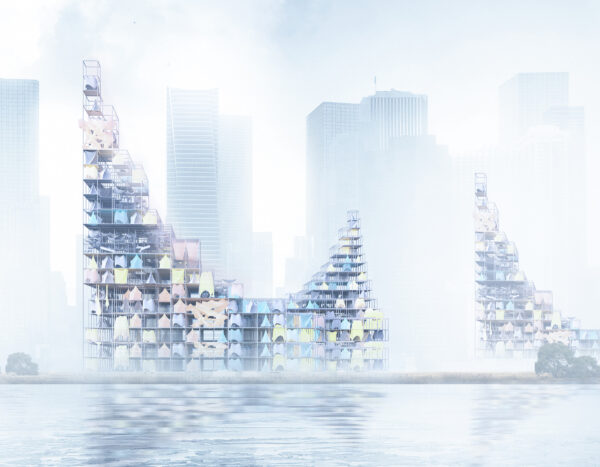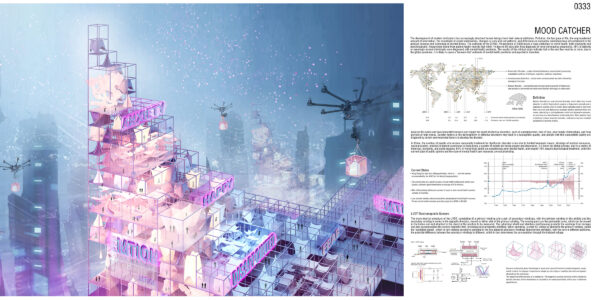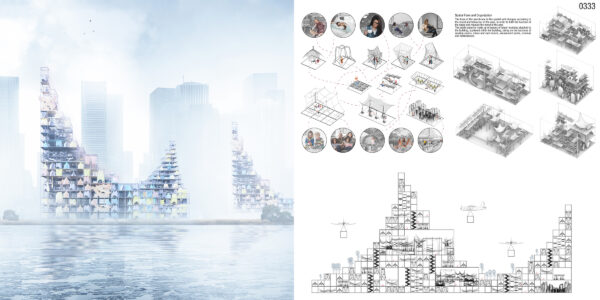Honorable Mention
2021 Skyscraper Competition
Yao Junji, Liu Yuxi, An Peiyan, Chen Yuxuan, Huang Yunting
China
The development of modern civilization has increasingly detached human beings from their natural attributes. Pollution, the fast pace of life, the unprecedented amount of information, the complexity of social relationships, changes in work and rest patterns, and differences in consumer orientation have all contributed to the gradual increase and worsening of mental illness. The outbreak of the COVID-19 pandemic in 2020 poses a huge challenge to world health, both physically and psychologically. Researchers found from patient health records that within 14 days to 90 days after the diagnosis of novel coronavirus pneumonia, 18% of patients or seemingly normal individuals were diagnosed with mental health problems. The results of this clinical study indicate that in the next few months or more, due to the global pandemic, it is likely to cause a “tsunami-like” outbreak of mental health problems and psychiatric disorders.
Among multiple mental health problems, dysthymic disorder is characterized by high prevalence, high relapse rate, high disability rate, high suicide rate, and high disease burden, which refers to significant and persistent emotional changes caused by various reasons, including depression, bipolar disorder, etc., mainly manifested as emotional highs or lows, accompanied by corresponding cognitive and behavioral changes. Meanwhile, other psychological problems or diseases are often accompanied by emotional cognitive impairment, emotional loss of control, and other emotional problems.
In China, the number of people who receive reasonable treatment for dysthymic disorder is low due to limited treatment means, shortage of medical resources, social prejudice, and lack of patient awareness. In Hong Kong, a quarter of people are facing anxiety and depression, 2.5 times the global average, due to a variety of historical, economic, and social reasons. 61% of Hong Kong adults are experiencing poor mental health, and roughly 18% require psychological treatment, while the current state of public opinion and the state of mental health care resources are not promising.
The high-rise building is designed to meet the needs of general psychological counseling and treatment while targeting the common emotional issues in psychological problems and to achieve immersive treatment through information exchange and interaction between the building space and the users. It will also serve as an activity center integrating counseling,
therapy, recreation, and entertainment, becoming part of the daily life of Hong Kong residents, popularizing mental health knowledge, and breaking down social prejudices. The same experience will be applied to the construction of mental health treatment resources in other regions around the world.

















